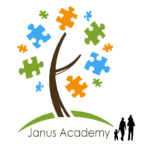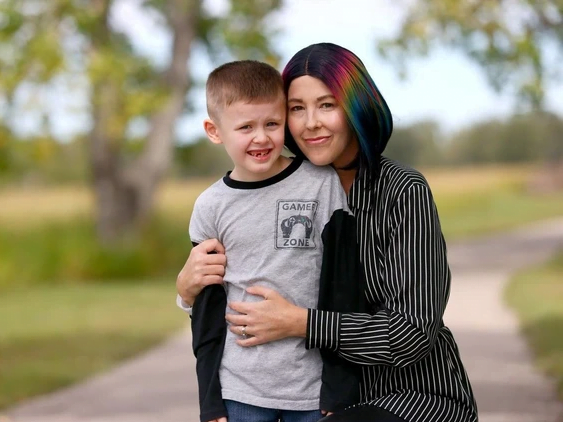For families across the country who are managing autism, the slogan “Alberta is Calling” has taken on special meaning with plenty of anecdotal evidence that Canadians are flocking to a new Alberta Advantage — a relative ease of getting financial help for their high-needs children
In Ontario, a five-year waitlist stood between Jen Addison and accessing autism support for her son Joshua.
When her son was diagnosed in 2019 with level three autism — often characterized as having severe challenges in social communication and inflexible behaviour — Addison and her husband immediately applied to the Ontario Autism Program. They ended up in limbo for four years, paying out of pocket with no news of when they could finally receive government funding.
Joshua was non-verbal until he was around five years old, but soon after he began talking he quickly regressed and would communicate only with non-verbal cues.
During the COVID-19 pandemic, the Ontario government introduced two allotments of interim funding, through which Addison was able to secure $40,000 — but that was it. While the funding seems like a lot, Joshua’s diagnosis requires an array of supports, including speech language therapy, occupational therapy, applied behaviour analysis (ABA) therapy and respite care.
Addison said each therapy can cost between $120 to $140 per session. For ABA therapy alone, the weekly tab can reach $3,000 or more to meet the recommended 20 to 25 hours of care.
Desperate for help, Addison did some research and found Alberta to be one of the leading provinces for autism supports for families and children.
“I just started researching, knowing that without those supports he’s not going to grow up to be able to take care of himself. He’s not going to be a functioning adult unless he gets those supports,” Addison said.
“We know how important early intervention was. I was so frustrated and so angry and so upset at the fact that these kids are just being ignored.”
Her family landed in Calgary in December 2023. By January they had applied to the province’s Family Support for Children with Disabilities (FSCD) program and were told their wait for funding was four to six months.
By mid 2024, Addison had secured a spot for Joshua to attend a private autism school in Calgary where half the tuition is being covered by the government.
‘Comprehensive program’
For families across the country who are managing autism, the slogan “Alberta is Calling” has taken on special meaning — and not one the province necessarily intended to advertise.
Though the government could not provide specific migration statistics, experts say there is plenty of anecdotal evidence that Canadians like Addison are flocking to a new Alberta Advantage — a relative ease of getting financial help for their high-needs children, at least for now.
Tim Ingram, a father of two kids with autism, moved to Alberta 10 years ago. He previously served on a parent advisory committee for FSCD and has consulted with over 200 families across Canada who are looking for help.
“FSCD is really a program that supports all disabilities, but it’s a really comprehensive program,” Ingram said. “One of the things you’ll see in Ontario that’s happening now is that parents will wait five or six years for funding. By the time they get the funding they need, their kid is now nine or 10 and they don’t need the funding that Ontario is giving because it doesn’t fund what they want.”
From his perspective, the reason families are heading to the Alberta boils down to affordability and access. Ingram has talked to many families with young children who are looking for early intervention services so their children can be as independent as possible in the future.
Dr. Lonnie Zwaigenbaum, a developmental pediatrician and a professor at the University of Alberta, said Alberta looks at more family-oriented care compared with other provinces. He said one of the selling points is that parents have some choice in selecting a provider whose care approach aligns with what they feel is most appropriate for their child.
“I think there’s been a real shift across the country and in other areas of world, recognizing that we all learn about communication and social relationships through real-life experience, rather than out of the context of our daily lives,” Zwaigenbaum said.
“Across the country, there’s becoming more of an emphasis on service models that involve family.”
Caseload jumps to 20,000
While Alberta’s program is enticing to families, the breadth of services varies across the province, and there are concerns about funding keeping up with growing demand.
“We’re seeing FSCD funding being flat and yet we’re seeing tons of people moving in,” Ingram said.
Alexandru Cioban, a spokesman for the minister of community and social services, said in a statement to Postmedia that FSCD works to provide services based on each child and family’s needs.
“Our government is committed to ensuring that vulnerable Albertans, especially children with disabilities, continue to have access to the quality supports and services they need to thrive,” the statement said.
“The fact that families from across Canada are choosing to settle down in Alberta is a testament to the success of our efforts in supporting vulnerable members of our communities, as well as in strengthening our economy, making sure the dream of home ownership remains achievable, and the cost of living remains affordable for Albertans,” Cioban said.
During the 2023-2024 fiscal year, there were 20,003 families accessing FSCD supports in Alberta, a 31 per cent increase over the previous year. About 50 per cent of the children in that caseload have a primary diagnosis of autism, the province said.
Back in 2020-2021 — the latest numbers published on the province’s Open Data website — Alberta recorded 6,427 people accessing autism supports. A decade before that, the caseload number was 2,537.
The province said it has allocated over $685 million since 2022 to the FSCD program to support families and address wait list pressure.
To read the full article, please go here: https://calgaryherald.com/news/local-news/ontario-families-alberta-autism-funding

